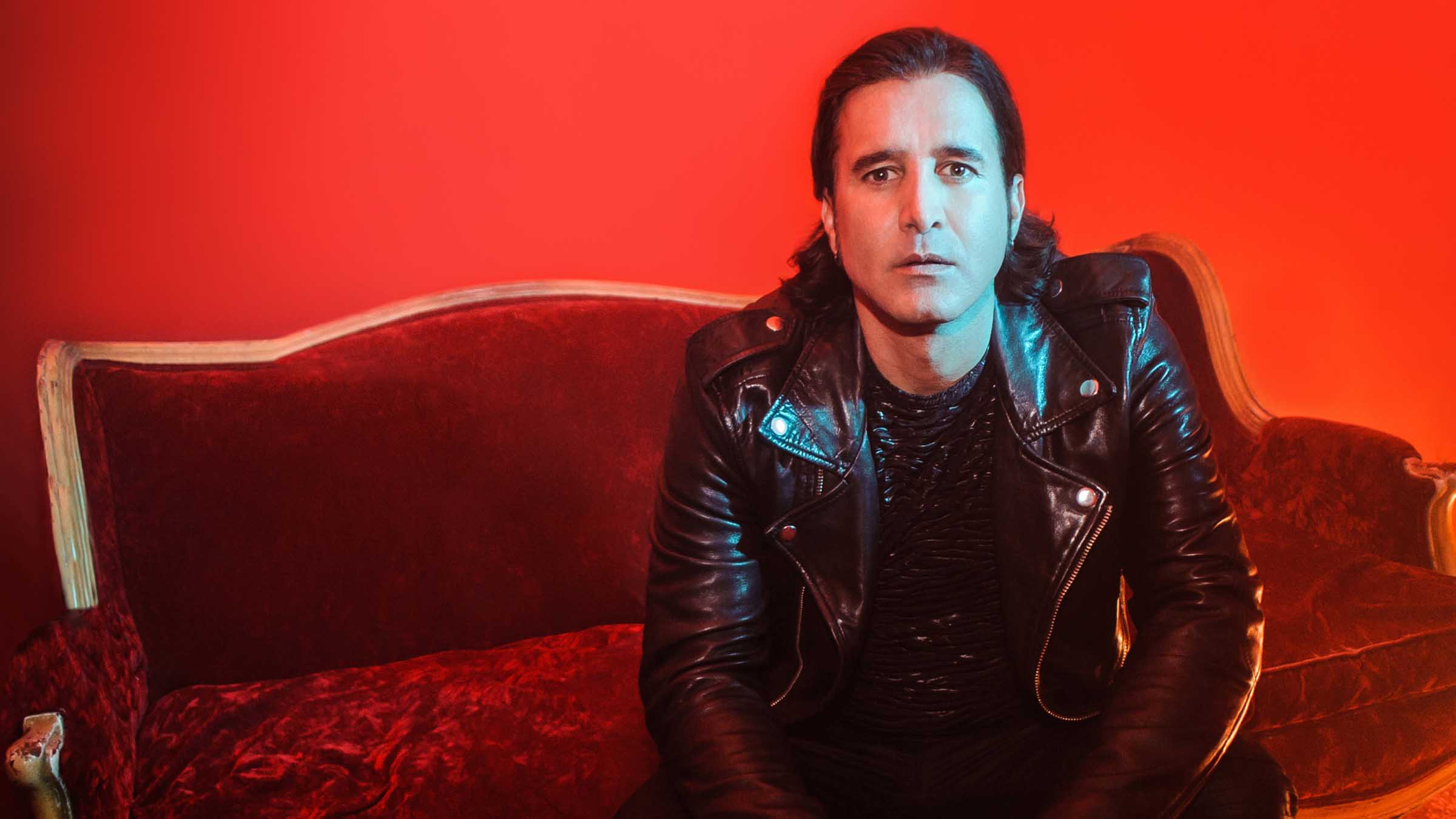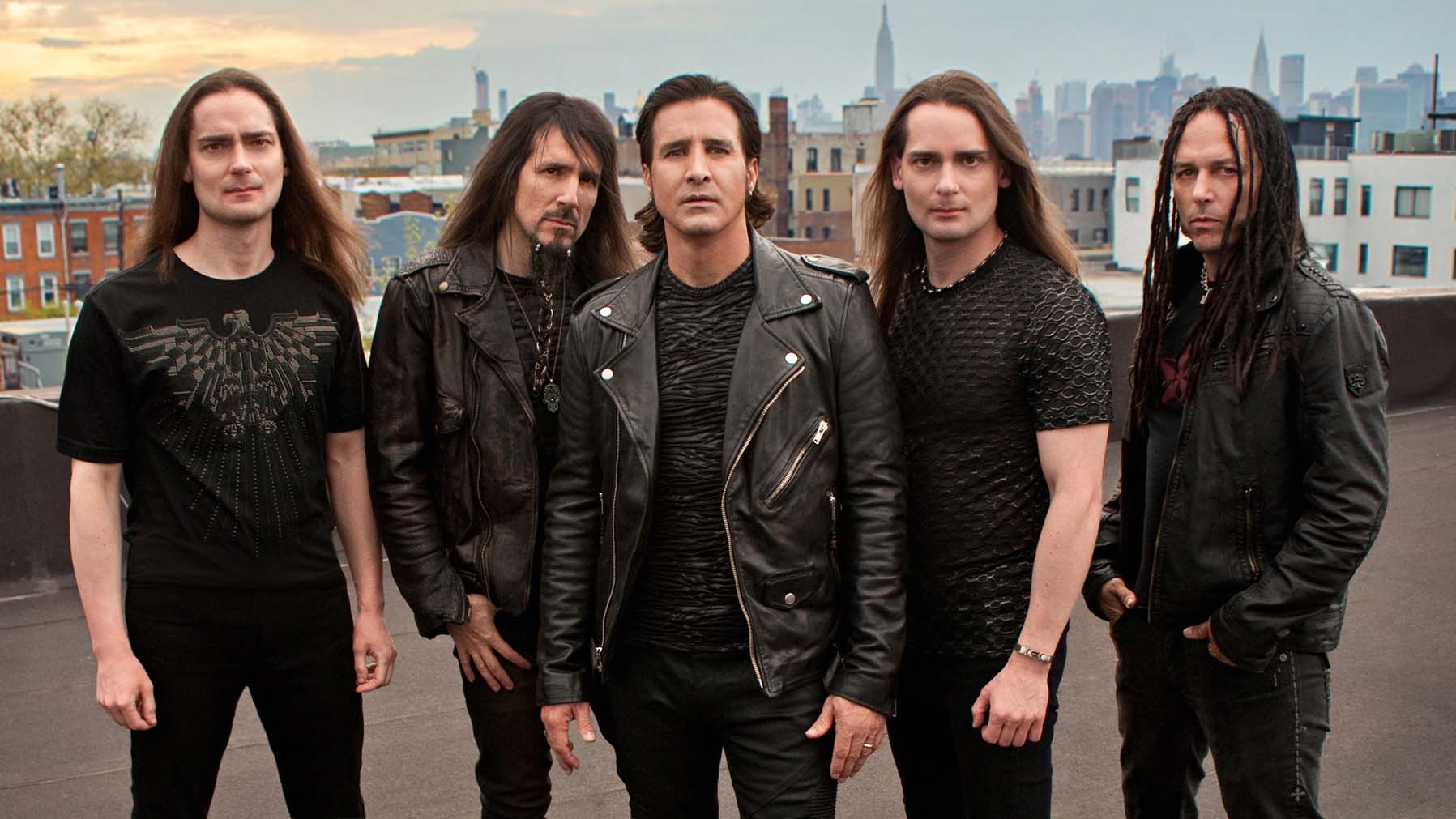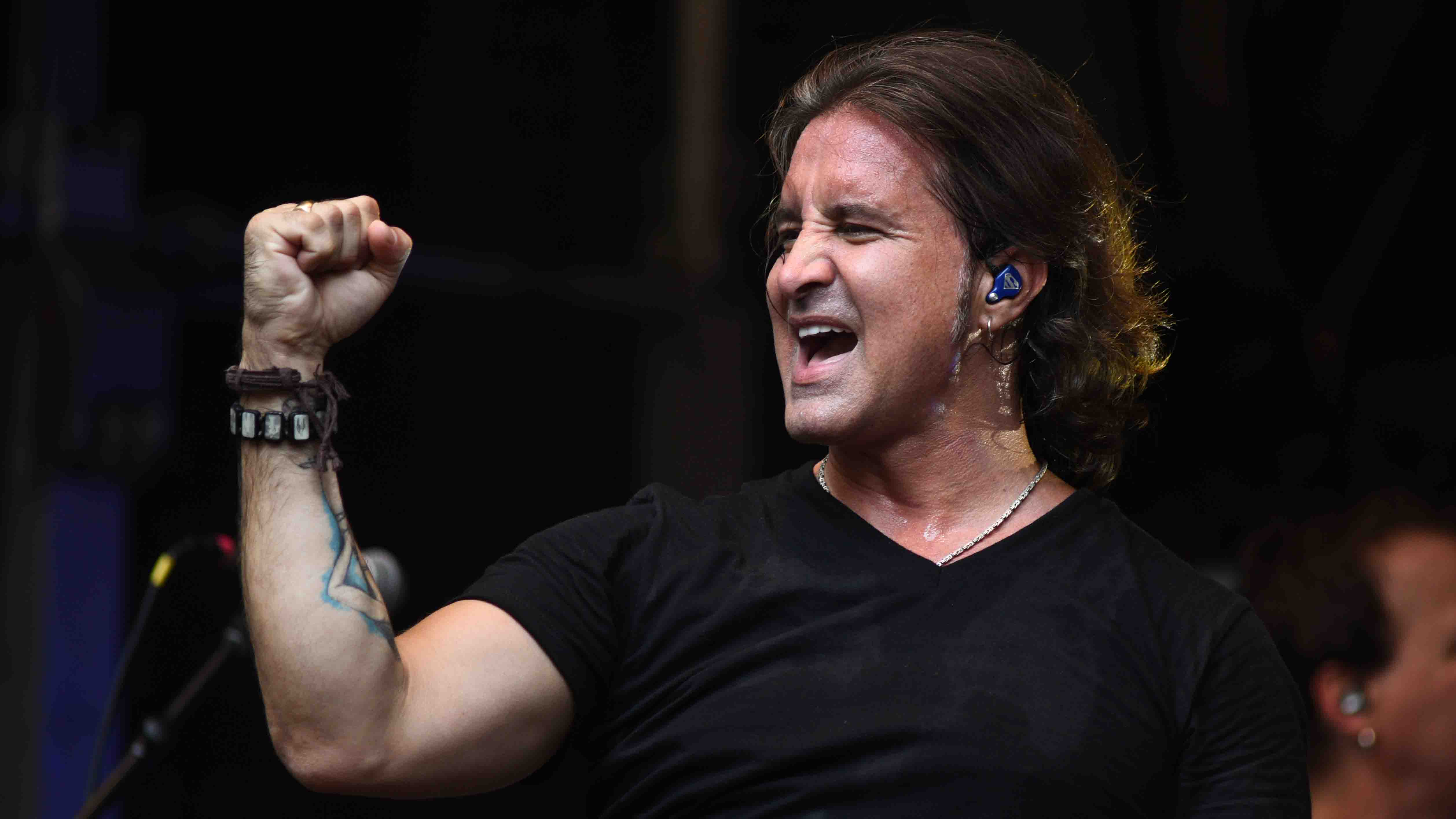
Introduction
Turmoil, tragedy and redemption are not barren concepts for bands, yet rock supergroup Art Of Anarchy experienced all of them before even playing their first gig.
Not long after their eponymous 2015 debut, singer Scott Weiland parted ways with the band - which also comprises former Guns N' Roses guitarist Bumblefoot, Disturbed bassist John Moyer and twin brothers Jon and Vince Votta - and attempted to distance himself from the project, with the former Stone Temple Pilots and Velvet Revolver frontman sadly passing away on 3 December.
Enter Creed vocalist Scott Stapp. Since we last spoke to him three years ago, Scott had seemingly put his demons behind him, only to have a public, worrying breakdown after coming off prescribed medication.
However, after recovering from what Stapp refers to as his “crisis” or “incident” and being diagnosed as bipolar, he was approached to join Art Of Anarchy as its new singer.
The result is second album The Madness, a more muscular, strident effort than their debut, with Stapp's distinctive singing a vehicle for a deeply personal, candid memoir of his breakdown, illness and salvation through the likes of Changed Man and No Surrender. Here he explains how this opportunity came about to help him find closure.
How did you come about joining Art Of Anarchy?
“I wasn't particularly looking to join a band; I was out touring my solo record and was focused on that. When I heard who was in the band, that definitely sparked my interest. The guys asked me if they could come down to where I was living in Boca Raton, Florida. We talked music and ideas and set up a rehearsal studio to jam, share ideas and see if there was any chemistry.
“We did, and I decided right then that it was something that I wanted to do it. What made it so appealing was not only the musicianship and talent, but they're all great, positive, humble guys, with great attitudes.”
Were you at all hesitant about joining a band in a role that was previously Scott Weiland's?
It was almost like Scott Weiland speaking to me from the grave, saying, 'Brother, you need to stay on the straight and narrow or this is what could happen to you.'
“I had some hesitancies, but they had nothing to do with the band's history. My primary hesitancy is that I live a sober life and my sobriety is very important to me, so I wanted to know what I was getting into. I did not, and would not, get involved in a band that was partying, drinking and doing drugs all the time. But after meeting with the guys and sharing my heart they were very supportive. Once it was clarified that we were on the same page, that cleared the way for us to move forward.
“Scott Weiland left the band prior to his death. They had a falling out and never toured. So the way he affected me was in my approach, knowing that these guys had had a relationship go sour, so I wanted to go out of my way to show these guys I was a humble guy, a team player and to give them a positive influence as well – to revive their faith in what it means to be in a band.
“Scott Weiland's life affected me outside his involvement with AOA. God rest his soul, may he rest in peace, and I feel for his wife and children. His life was a reminder to me of where my life was headed if I continued to use alcohol and drugs. Having that reminder that he used to sing in this band was almost like him speaking to me from the grave, saying, 'Brother, you need to stay on the straight and narrow or this is what could happen to you.' That's really impacted me in my desire and drive to stay sober one day at a time.”
Don't Miss
Scott Stapp talks solo tour, Creed and overcoming his demons

The Madness
The Madness is a big evolution from Art Of Anarchy’s debut. Were you able to put your own stamp on the music?
“We went in John Votta's basement just like I did in 1994 with Creed: sitting around, trading ideas, finding out who we were as a band, what our sound was, what we were into collectively. The guys were cool to reach out to me and give me the freedom to express who I was, and wanted my involvement in every aspect. We clicked and there was a definite new direction.”
There's a lot on the album that sounds quite a departure from your normal comfort zone. Did you see this album as a way to challenge yourself musically?
“Absolutely, man. That was very intentional. I wanted to go places vocally that I had never gone before and try new things. There was a synergy between the band and I in terms of how we could create music that would push me into different spaces.
“I didn't want to just be involved in a new band and have it sound like everything else I've ever done. Of course, I can't escape how I sing, but I really think as a body of work it sounds different to anything I've ever done, and I'm proud of that.”
Did you have plans for another solo album before the opportunity to join AOA came along? Were some of the songs destined for that?
“Somber and Dancing With The Devil were going to be on my next solo record, but with the story that was being told on the AOA album, I brought them to the band and AOA gave them their stamp of identity.
“I write lyrics all the time, and given some of the difficulties I went through three or four years ago, I had a lot of material. I had a lot of ideas that I had written down during that crisis and post-crisis. I had some lyrical ideas that probably would have been on my next solo record, but AOA became the outlet for that.
“I'm glad because it was a way to express and use the album-making process as a therapeutic and cathartic process, but express it in a unique and new way.”

The best policy
You've always been a singer who's worn his heart on his sleeve, but the lyrics on The Madness are particularly forthright. Is this the most honest record you've made?
“I only know one way to write, and that's being 100 per cent honest and transparent. I think with this record I may have been the most clear, spelling it out and not alluding or using too much imagery. I left no room for interpretation. It would be hard for me to say that it's the most honest record I've made as I always try to be honest; that's part of my style.
“In Won't Let You Down, I really went into lyrically to describe what bi-polar feels like, what depression feels like, what the swings feel like when you're unmedicated and untreated. In Changed Man, I was very candid and opened up to the world. That is a sung conversation I had with my wife at the tail-end of my health crisis in my attempt to keep her and my family, and let them know that I'm going to fight to keep healthy and get back to the man that they know and love.
I hope for others out there that suffer or are suffering that they can connect with these songs and realise they're not alone
“I hope for others out there that suffer or are suffering that they can connect with these songs and realise they're not alone, listening to a guy that's lived it, and lived it on the public stage for the world to see. When you tie this record in with what happened, it makes a lot of sense. You can see how those events ended up in the themes and lyrics of the record.”
Was making the album part of your therapy?
“100 per cent, man. I think, for me, it was closure, a symbol of making it to the other side. No longer does the crisis define me. Now let's begin being an artist and beginning the process of the music defining me again.
The breakdown really shattered me and robbed me of all confidence and self-esteem; my entire life of the person I thought I was broken into a million pieces
“I went through some very low times after that situation and got out of touch with my identity and who I was as a human being. The breakdown really shattered me and robbed me of all confidence and self-esteem; my entire life of the person I thought I was broken into a million pieces, and I felt so fragile.
“I talk about that in Echo of A Stream and that battle inside your head: which voice are you going to listen to? Are you going to allow this crisis that was completely out of your control define and bury you? Or are you going to get back up, handle what needs to be handled, move forward and really start living life?
“No Surrender is me describing that place of feeling flatlined, like my heart had stopped, figuratively, after the crisis. It's about the choice: am I going to stay on that bed and flatline or am I going to get up and get through this?
“One thing that was a big catalyst and inspiration was my wife and my children. How are my children going to see their father 10 years from now when they're old enough to understand? Is he someone who got back on his feet, fought on and found redemption, or was he going to crumble and destroy himself?
They were a catalyst in having the will and determination to survive and get to the Art Of Anarchy record, make it and process it, and start the next chapter of your life.”
The Madness is out on 24 March via Another Century.
Don't Miss
Scott Stapp talks solo tour, Creed and overcoming his demons